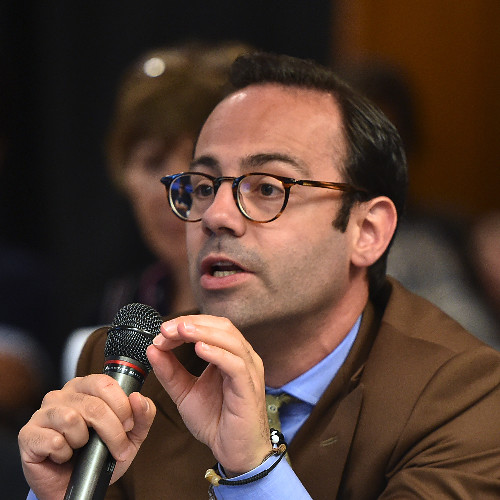Meet Dr Federico Lupo-Pasini
Meet Dr Federico Lupo-Pasini Professor of Financial Law in Durham Law School and Director of the MSc in Law and Finance (New for 2025)

Tell us about your role within your department:
I am a Professor of Financial Law, and I am the Director of the MSc in Law and Finance. As part of my duties within the department, I teach financial law modules and occasionally contribute to the teaching of Contract Law and Commercial Law. Depending on the circumstances, I can also be involved in other projects, from recruiting new colleagues to dealing with some external stakeholders.
What first attracted you to your chosen field of expertise?
The complexity. My original field of expertise was international trade. Before doing my PhD, I worked in various countries advising governments on international trade policy. In my role, I often dealt with international trade in financial services – essentially promoting the liberalisation of the banking and securities sectors in those countries. I moved to academia not long after the global financial crisis when a new armoury of regulation was developed for global finance. I found the complexity of the rules on global finance extremely fascinating and decided to study them. Unlike other areas, finance is always evolving, and new rules are constantly needed. As an academic, you’re never bored.
What is your favourite subject to teach and why?
I like to teach financial law and, more in general, all financial law subjects. I especially enjoy explaining the more complex concepts like capital regulations and bank insolvencies. Even though I don’t teach it anymore, I also like to teach international trade.
What can students expect from their first few weeks on your course?
The first few weeks cover the foundations of financial markets and regulation. Students will study the basic concepts of corporate finance, bank and securities regulation, and financial theory. For example, they will learn how a financial product is structured, what is an Initial Public Offering, or how to deal with a bank in distress. Those weeks will be challenging because students will have to learn concepts that they are not familiar with. At the same time, this first part of the MSc will lay the foundations that would allow them to progress to more advanced topics like FinTech or sustainable finance.
What do you think makes your course and department unique?
The MSc in Law and Finance is the flagship master of the Law School and, perhaps, the entire Faculty. Its entire structure makes it unique. We designed this programme with the single purpose of preparing graduates to work in top capital markets or compliance departments in law firms or financial institutions across the world. It’s the only interdisciplinary and cross-department course in the Law School. Students will be effectively splitting their time between the Law School and the Business School and will be in the unique position of being at the same time finance students and law students. The master also relies heavily on embedding the actual practice of financial regulation into the studies via guest lectures, the analysis of case studies and the dissertation, which can be linked to a work placement.
What advice would you give to someone thinking of studying your course?
Read the business news. Make reading the Financial Times or the Wall Street Journal a daily habit. Finance is constantly evolving, and if you want to work in this sector, you must be on top of the new developments in markets and regulation. Be prepared for a very steep learning curve, but I can guarantee you that this will bring great rewards in the long term. Once you graduate from the programme, you will be able to master even the most complex concepts in finance, and you’ll be ready to work in any job in the financial law and financial services industry.
What have your students gone on to do after graduating from Durham?
Students have gone to work for law firms with a financial law practice, for regulatory agencies, and in compliance departments in banks and other financial institutions.
Find out more
- Meet Dr Federico Lupo-Pasini Professor of Financial Law in Durham Law School and Director of the MSc in Law and Finance (New for 2025)
- Visir Dr Lupo-Pasini’s profile
- If you’d like to share your story or insights into your work, visit our Submit a blog or vlog page to learn more.
